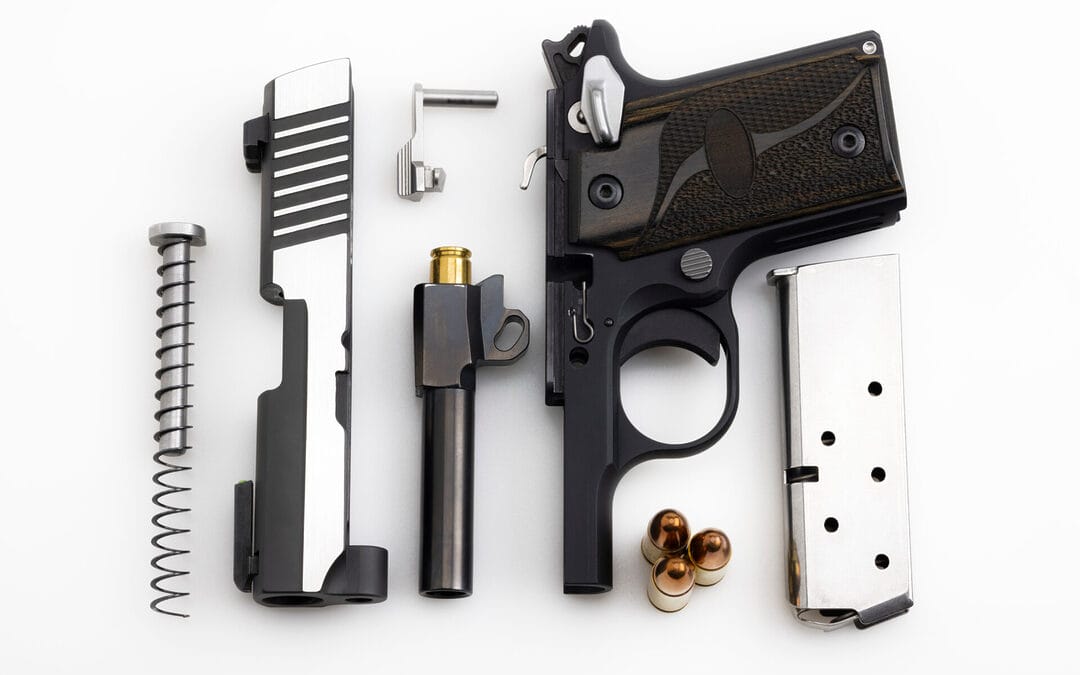Gun Buying Guide: 10 Tips for New Gun Owners (2024 Edition)
1. Determine Your Purpose
The first step in buying a gun is identifying why you need one. Are you looking for home defense, hunting, or recreational shooting? Each purpose demands a different type of firearm:
- Home Defense: Consider a shotgun or a handgun for ease of use and reliability.
- Hunting: Rifles or shotguns with appropriate calibers for your game.
- Sport Shooting: AR-style rifles like the Adams Arms Base Rifle are versatile choices.
2. Understand the Types of Firearms
Firearms generally fall into three categories: handguns, rifles, and shotguns. Each has its strengths and intended use cases. For example:
- Handguns: Compact and ideal for concealed carry.
- Rifles: Best for hunting or long-range shooting.
- Shotguns: Excellent for home defense and hunting birds or small game.
3. Set a Budget
Determine how much you’re willing to spend on your firearm and essential accessories. For beginners, we recommend budget-friendly yet reliable models such as the ATI Milsport .223 Rifle. Allocate part of your budget for accessories like gun safes and cleaning kits.
4. Invest in Essential Accessories
Firearms require a few key accessories to ensure safety and maintenance. Consider the following:
- Gun Safes: Secure your firearm safely.
- Ammo Storage: Protect your ammunition from moisture and tampering.
- Cleaning Kits: Keep your firearm in optimal condition.
5. Learn About Legal Requirements
Before purchasing a firearm, it’s essential to understand and comply with federal, state, and local regulations. Laws governing firearm transactions vary, and adhering to them ensures a lawful and responsible acquisition. Here’s what you need to know:
Federal Regulations
At the federal level, the Bureau of Alcohol, Tobacco, Firearms and Explosives (ATF) enforces laws related to firearms. Key federal requirements include:
- Background Checks: Under the Brady Handgun Violence Prevention Act, federally licensed firearms dealers must conduct background checks through the National Instant Criminal Background Check System (NICS) before transferring a firearm to a buyer.
- Form 4473: Buyers must complete ATF Form 4473, providing personal information and certifying their eligibility to purchase a firearm. Learn more about Form 4473.
State and Local Regulations
In addition to federal laws, state and local jurisdictions may impose specific requirements, such as mandatory waiting periods, firearm registration, and specific permits. Examples include:
- Permits to purchase or carry specific types of firearms.
- Mandatory training or safety courses.
- Restrictions on magazine capacities or certain firearm models.
For more details, consult your state’s laws or contact your local firearms dealer.
Iowa Regulations
In Iowa, specific state laws govern firearm purchases:
- Permit to Acquire: As of July 1, 2021, Iowa no longer requires a permit to acquire pistols or revolvers. However, obtaining a permit can facilitate the purchase process by allowing the holder to bypass the federal NICS background check at the point of sale. More details are available on the Iowa Department of Public Safety’s website.
- Background Checks: If you do not possess a permit to acquire or a permit to carry, federally licensed firearms dealers are required to conduct a NICS background check before completing the sale of a handgun. This ensures that the buyer is legally eligible to own a firearm.
- Age Requirements: Individuals must be at least 21 years old to purchase a handgun and at least 18 years old to purchase a rifle or shotgun. These age restrictions are in place to promote responsible firearm ownership.
Consulting Local Authorities
Given the variability in laws across jurisdictions, it’s advisable to consult with local firearms dealers or legal experts to ensure compliance with all applicable regulations. They can provide guidance tailored to your specific location and circumstances.
Additional Resources
- ATF’s State Laws and Published Ordinances – Firearms
- Iowa Department of Public Safety – Weapon Permits
By thoroughly understanding and adhering to these legal requirements, you can ensure a responsible and lawful firearm purchase.
6. Prioritize Safety Training
Proper firearm handling is critical for safety. Enroll in a basic firearms safety course to learn how to operate your gun responsibly. Training is especially crucial for first-time owners.
7. Recommended Firearms for Beginners
Here are some beginner-friendly options:
- Alex Pro Firearms APF Econo Rifle: A great entry-level AR rifle.
- Reliable handguns (e.g., Glock 19 or Smith & Wesson M&P Shield).
- 12-gauge shotguns for home defense and hunting.
8. Firearm Maintenance Tips
Regular cleaning and maintenance are essential for your firearm’s longevity and reliability. Use high-quality cleaning kits, such as the Otis Tactical Cleaning Kit, to remove residue and keep components functioning smoothly.
9. FAQs for New Gun Owners
- How do I choose the right firearm for me?
- Consider your intended use, budget, and comfort level. Test different firearms at a range if possible.
- What permits are required?
- Permits vary by state. Contact your local gun store or law enforcement for guidance.
- How can I ensure safe storage?
- Invest in gun safes and locks to prevent unauthorized access.
- How often should I clean my firearm?
- Clean your firearm after each use or at least once every few months if unused.

